- Home
- Lisa Kleypas
Wish List Page 24
Wish List Read online
Page 24
He turned to face her, stopping them on the path. Her feet were cold. It didn’t matter. He was the most beautiful man she had ever seen, the most masculine, the most marvelous. His eyes, so green in the gray world of winter, demanded something of her. Pity, she supposed. He looked a man beset and just a bit bewildered. A man on the brink of matrimony would have such a look; Lindley had looked so when he had offered for Miss Brookdale. It must be the way of men to have to be hounded to the altar. She felt completely calm. She knew what she wanted. She only waited for him to say it.
“Let me ask you instead why you so clearly want to marry me,” he said, adjusting his hat when it was already set perfectly upon his head. When she paused, he crowed, “You see? It is not so simple a question to answer. No one should be put in such a position. I withdraw—”
“No,” she interrupted him. “I want to answer you. This is more in the matter of a practical arrangement, and I believe we should be truthful about both our purpose and our expectations.”
“Come now. I expect no such answer. This borders on incivility—”
“I disagree. Let us be honest with each other at the very least; even if this is to be our last conversation.”
At his silence, she only smiled. He had not liked hearing that gently voiced threat.
“I have come to the point in my life when marriage is expected,” she said, her voice grave. “I have a duty to my family to marry well. Your title and your income make you quite desirable.”
“High on your list, you might say,” he interjected curtly. He looked irritated. It didn’t alarm her, as it didn’t signify; men were so easily irritated.
“I do say,” she said brightly. “You are my first choice, most especially because of the desirability of your Irish estate. You are in a county I particularly admire, and all agree that your house is outstanding.”
“To hell with all that!” he roared, obviously pushed beyond his endurance for honest communication.
Oh, he was definitely angry. And he had used foul language. If he thought to shock her into silence or submission he had calculated poorly; she had ten brothers, three of them in the army.
“My lord? I am not accustomed to such speech,” she said tartly. “Can you not refrain? This is a point I had not considered; is such intemperance a permanent feature of your character?”
Apparently it was.
Beau, his face a mask of barely controlled frustration, pulled her into his arms. He was not gentle. She was not afraid. She felt lost against the size of him—lost and then found.
“There is more to me than my estate, Clarissa, and more between us than titles,” he said in a growl, his mouth bare inches above hers. “That is a truth you shall not deny.”
He kissed her then, and, bold as she was, she welcomed it. It was a hard kiss, an angry kiss, a kiss of threat and promise. She felt only the promise.
His mouth was hot and heavy upon hers, yet she did not turn from it, for there was passion, too, and she was hungry for his passion. She knew the truth of his desire for her in his kiss. She could not—would not—turn from that.
Dalton, appearing at the entrance to the garden, ended it.
Beau lifted his head from hers, his eyes green points of fire in a face chilled by winter. She felt burned, and shivered.
“I’m afraid I’ll have to insist that you marry her now, Beau,” Dalton said, cheerily enough, all things considered. “You certainly have fixed yourself.” He almost laughed.
“I had already asked your sister to marry me,” Beau said, pulling Clarissa to his side and holding her there. “This was her answer.”
“Ahhh.” Dalton grinned.
He didn’t believe a word of it.
—
The marriage took place on Friday of that week, a small affair of family only. Still, they filled the salon. Chadwick and Braden, both in the army, were unable to attend. Leighton was busy in Ireland and couldn’t make the crossing in time, and Alston and Harden were touring the continent, trying to avoid trouble, they wrote. So only Albert, Lindley, Jane, Dalton, Russell, and Perry attended the ceremony from her side. All wore smiles. On Beau’s side was his paternal grandmother, Lady Claire, a delightful woman with the same green eyes as her grandson.
Beau still looked a trifle angry, which puzzled Clarissa completely. Oh, well, that would pass. He had the wife of his choosing. She had done her duty to her family and married well without a whimper of complaint. At least not in the last week.
During the wedding breakfast, she sat quietly congratulating herself as the conversation flowed around her. Beau was oddly quiet as well; perhaps he was equally self-congratulatory. They had made a good match, each of them, and deserved a small moment of victory. Before the breakfast was quite over—she had hardly finished her tea—Beau announced to the room that they would be leaving immediately on their wedding trip. It seemed a bit precipitous to her, but she was not of a mind to cause any commotion over it. She was eager to see Montwyn Hall.
Naturally Jane would accompany her.
Naturally Albert had to stop her as she was entering the coach to congratulate her once more on her excellent judgment. And again, as it had the last ten times he had offered such words of praise, the compliment rankled. It should not. She had made the best match of the season. She was on her way to Ireland even now, for that was the final destination of their bridal itinerary. Ireland. She would be in Ireland again. Home. Once she was settled, Beau would return to England. Which was where he belonged, being English. She would remain in Ireland, alone.
The thought brought less pleasure than it had even a week ago. Alone was such a lonely-sounding word. Would he really leave her alone? Pish, she would have Jane… and Ireland. She would not be alone.
But she would not have Beau.
Did he honestly mean to leave her alone?
At present, he did not. Beau had her bundled into the coach with Jane snug against her side before she had quite finished her farewells. Beau sat across from them, warm in his greatcoat, solemn and silent.
And so he remained throughout the day; even Jane with her pleasant and hopeful nature could not stand against such a wall of silence.
Clarissa had no energy to make the effort. All her thoughts were of Ireland; the man who had made it possible, her husband, she barred from her thoughts. Though it was a most difficult thing to do with him sitting just across from her, his knees brushing against her skirts, his green eyes studying her. Still, she persevered. It was to be only the first of many barriers she would set between them, because, ultimately, she would bar him from her life. She had married well, done credit to her family, acquired access to an Irish estate, and, once she’d produced a child or two, giving him his heir, their paths would hardly cross again.
Just what was required to produce an heir she did not dwell upon.
And so the journey was spent in silence, a silence as heavy and cold as winter itself.
They arrived at Montwyn Hall just at dusk. It was impressive. Most impressive.
Manicured woods, bare now, limbs reaching toward the growing darkness, lined the gravel drive, which swept in a graceful arc to the front of the hall. The hall itself consisted of a massive central building surrounded by four pavilions linked by quadrant colonnades, all perfectly symmetrical, perfectly grand.
Jane looked suitably impressed. Clarissa could not have been more pleased.
“So you’re happy with your bargain?” Beau asked as the coach stopped in front of the portico. It was the first sentence he’d spoken to her all day.
He sounded insulted, yet why should he be? Why should he not be flattered and pleased that the legacy she had married into was grand? She was expected to marry well. Should she be derided because she had? Obviously not. Her only recourse was to ignore him, since he was being so contrary.
But he was very difficult to ignore.
—
He knew that well enough.
Beau was perfectly aware that Clarissa was doing
all in her power to ignore him, as if he were an unnecessary accessory to “her” Irish lands. She had been clear in her purpose from the start and equally vocal. What cause had he to complain now?
What cause? Because he had believed her to have some kindred feeling for him. Because he had wanted her with the first look. Because her odd honesty had beguiled him as surely as her beauty.
Beguiled but not blinded. He was no fool; he would not have pursued her if he had not felt some shimmer of attraction in her. She wanted him, and for more than his title and lands. She had to want him. No woman could be so cold and… practical. It was only left for him to prove it to her. He was not a pair of gloves purchased for her convenience. He was her husband. If she did not understand the difference, she soon would.
The house was entered through the marble hall, and he could hear her intake of breath; it was breathtaking. Corinthian columns of pink Nottinghamshire alabaster made up the colonnade. The ceiling was frescoed and lit by circular skylights. The floor was buff marble inlaid with curls and circles of white marble. It was most impressive entry.
“A most beautiful hall, Lord Montwyn,” Jane offered.
Beau nodded at the compliment, graciously accepting it from her.
“Shall we have a tour?” Clarissa said, her priorities clear, as always.
“Not tonight,” Beau answered. “Moresby has prepared a light supper for us. We shall dine and then retire for the evening. It has been a long and tiring day; I am certain a good night’s rest must head our list of priorities.”
Clarissa swallowed her argument and smiled her acquiescence. Most reasonable of her, especially as he had not given her any choice but compliance. Moresby, the head butler, was introduced to them, and he led the way to the dining room, where they ate sparingly. It had been a long day, and Jane, if not Clarissa, was most fatigued.
“I do think I could look at the ground floor,” Clarissa said as the plates were being cleared. “What was beyond the marble hall?”
“The salon,” Beau answered, rising from his chair, “and you shall see it tomorrow. Good night, Lady Jane,” he said. “Moresby will conduct you to your chamber. Have a most restful night.”
Jane left without a murmur of protest or even any hesitancy of step.
“That was most rude of you,” Clarissa said as they proceeded up the stairs. “Jane would have enjoyed a tour of Montwyn Hall very much. You gave not a thought to her pleasure.”
“I do believe that Jane is more attuned to my pleasure than my own wife,” he said. “Should we not hasten to the bedchamber and conclude our transaction?”
“I believe I quote your sentiments when I remark that you are delving into the vulgar in your attempts at truth telling,” she said.
“Perhaps the fault, if there is one, is that I lack your practice at speaking a civil truth. Perhaps I can phrase it better.” He pondered, leading her on down a wide hallway ornately littered with oil paintings and mahogany chairs. “Ah, let’s try this.” He smiled. “I want to sample the goods I have paid for. Better?”
“I should have paid more attention to your outburst in the garden. You are intemperate,” she said stiffly. Her stomach dropped into the cradle of her hips to wiggle there in a most distracting manner.
Beau merely smiled and opened the door for her. The chamber beyond was sumptuous, large, and well lit by fire and candle. The room was done in green, buff, and gold, the furniture Chippendale, the hangings silk. The bedcover had been turned down. All was ready for his “sampling.”
“Perhaps,” he said, closing the door behind them. “I would have said eager, but the best word may be curious.”
“Curious?”
“To see if your boldness was a ploy. I often wondered if you were as bold as you seemed. It appears I am soon to have my answer.”
“I understand the transactions of the marketplace as well as you,” she said coldly. “Let a servant attend me. I will present myself to you shortly, and then the bargain we have struck will be well and truly sealed.”
“No servants,” he said. “Just us. And this bargain, this union, is already sealed, Clarissa. All has been signed, our words have been spoken, our families have borne witness; we are wed, and not intemperately. We knew what we were about, did we not? Did you not know that when you shopped for an Irish estate, a husband came with it? Surely a great bargain for such an astute shopper as you.”
She stood speechless as he began to disrobe. He moved quickly. He showed no embarrassment at the revelation of his skin. She dared show none, though it was not embarrassment she felt but fear. Now came the moment when the bill must be paid. An heir must be conceived. She would have to couple with this man, this husband of hers, until her duty had been accomplished.
If he had looked powerful in cravat and coat, he was a hundred times more so bared to the waist. Muscle gleamed in the firelight, rippling with each movement of his body, proclaiming his raw masculinity loudly to her eyes. Her heart jumped into her throat to almost suffocate her. He stared at her; his eyes were intense and discerning, reading in her what she most wanted to hide.
She wanted him.
Yet wanting to touch and be touched by the man before her could have no part in a rational mind; it was all blind desire and need. Such a response shamed her. She wanted him and… she thought she might love him.
She could not love him. She could not want him. She could not need him. Because she would leave him when she went home to Ireland. She would leave and he would stay; his duty would require it. Her heart would call her to Ireland; she would not leave it again.
“Come, Clarissa,” he said, clad only in his tight buckskin breeches. “I will not hurt you and I will not provoke you further.”
Not provoke? He truly had no skill at speaking honestly. He was broad and hard, his muscles sculpted by flawless skin. His chest was lightly furred with black hair, and his eyes shone green as spring growth.
“Thank you,” she said, turning her back on him. “Is there no one to assist me? No screen—”
“I will assist you, if you have need, and there is no need for a screen. Delay is not to your advantage, my dear. With a bold stroke, the matter is behind us.”
“I wish you had used a different expression,” she said with an uncomfortable laugh.
“I apologize,” he said, grinning. “Do not rebuke me for my lack of skill in truthful communication; I will learn.
Now, if you had been a different sort of woman, I would have resorted to my old ways of sparkling civility and polished pretense.”
“Really?” she asked, sitting to remove her shoes. “And what would you have said?”
He knelt at her feet and removed her shoes for her, his hands on her feet and ankles, his position submissive, his manner valorous. “I would have told you that since I first beheld you, with your vibrant hair curling around your face, I was captivated. I needed no brothers to commend you to me; my own eyes would have borne the task lightly.”
Her shoes were removed. With a gentle and subtle hand, he inched his way up to the top of her stocking. Her limbs shook and she could not stop her trembling. His eyes held hers, green as the darkest yew branches. She could not look away and could not find a reason to want to.
“I would have told you that, having seen you, I was halfway to offering for you. Hair as red as embers, eyes as deep and lustrous as a doe’s, skin as flawless as satin; what man would not want such a woman for his own?”
His fingertips touched her thigh, his skin cool next to her heat, and very gently he slipped her stocking down to her ankle. Over her foot he slipped it, his fingers caressing her arch and the delicate back of her ankle. She shivered and looked down into her lap.
“But what you speak is pretense, is it not? We have agreed upon that,” she said, not looking at him.
With bolder hands, he reached up and carefully slid down the other stocking. She felt strangely nude, yet she was fully covered.
He touched her face with the tips of his fi
ngers, tracing her. “You taught me that truth need not be uncivil. I teach you now that civility need not be pretense.”
He raised her to her feet and stepped behind her, loosening her gown. He did it without an overt air of seduction, yet it was seductive simply because it was Beau. Just knowing he was in the room made her heart pound erratically. To know that he was disrobing her… she felt light-headed, and her vision blurred.
“And when I spoke to you,” he continued, slipping her dress down to her feet, leaving her in her tissue-thin undergarments, “when I first understood that you had a tongue in your head—”
“Of course I have a tongue,” she interrupted, crossing her arms over her breasts and moving away from him. “What did you expect?”
“I can see that you have not been shopping for a bride, lady, or you would not ask,” he said with a chuckle.
“Not lately,” she said, turning to him again, her smile soft. He had not taunted her for her retreat from him, and for that she was grateful. He had every right to see her, to touch her; the deal had been struck. “I have been rather busy shopping for a husband. Tell me, what is the market in brides like this season?”
“Grim, lady,” he said, sitting on a chair by the fire to pull off his Hessians. “Silent and still when it is known you are looking for a bride. The women are demure and submissive, showing their best qualities first, I suppose, and then, when the dance has been shared and the turn in the garden has been taken, the truth comes out.”
“Truth is always good,” she said, kneeling before him to help with his boots. She would be logical and not fearful. The marriage must be consummated.
“Not in my experience,” he said. “For the truth is… they have nothing to say. Demure silence is their only recourse when nothing intelligible comes forth.”
“Perhaps they are overawed by you,” she said, succeeding with one boot.
“Undereducated and lacking spirit, rather,” he argued, succeeding with his second boot.
He should have looked rather harmless sitting in a chair in his stockinged feet. He did not. Beau Wakefield was not the least bit harmless, sitting or standing, naked or clothed. Naked… they were almost naked.

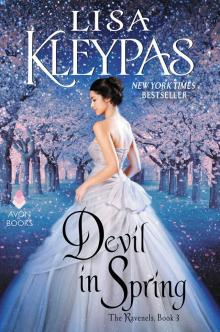 Devil in Spring
Devil in Spring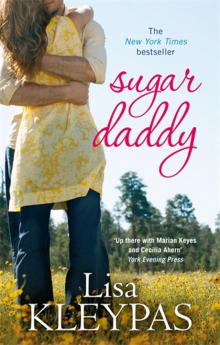 Sugar Daddy
Sugar Daddy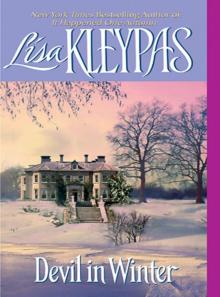 Devil in Winter
Devil in Winter Dreaming of You
Dreaming of You Christmas Eve at Friday Harbor
Christmas Eve at Friday Harbor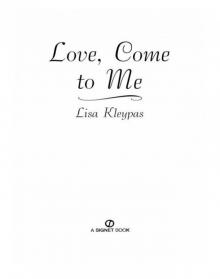 Love, Come to Me
Love, Come to Me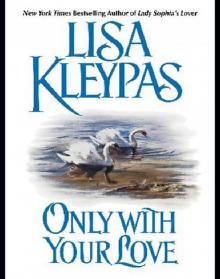 Only With Your Love
Only With Your Love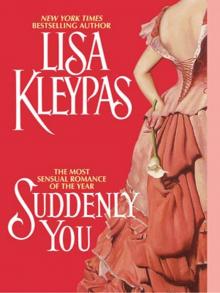 Suddenly You
Suddenly You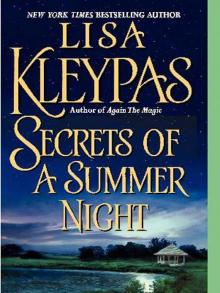 Secrets of a Summer Night
Secrets of a Summer Night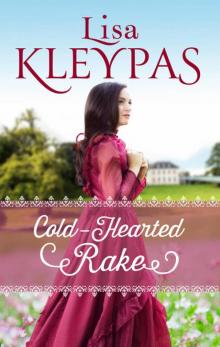 Cold-Hearted Rake
Cold-Hearted Rake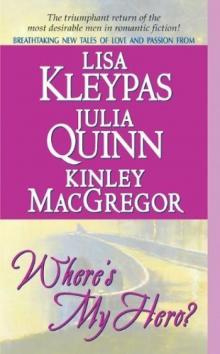 Where's My Hero?
Where's My Hero? Gifts of Love
Gifts of Love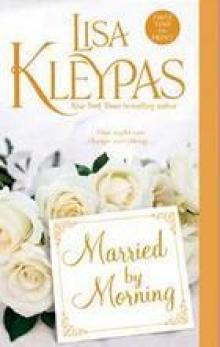 Married by Morning
Married by Morning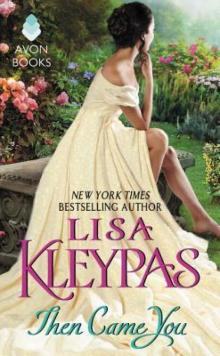 Then Came You
Then Came You Wish List
Wish List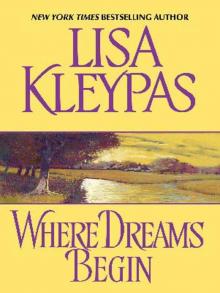 Where Dreams Begin
Where Dreams Begin A Historical Christmas Present
A Historical Christmas Present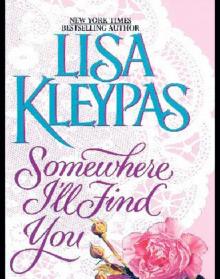 Somewhere I'll Find You
Somewhere I'll Find You Scandal in Spring
Scandal in Spring Someone to Watch Over Me
Someone to Watch Over Me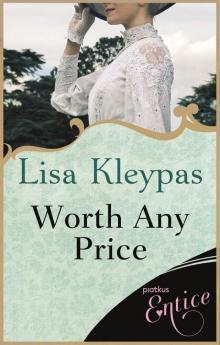 Worth Any Price
Worth Any Price Prince of Dreams
Prince of Dreams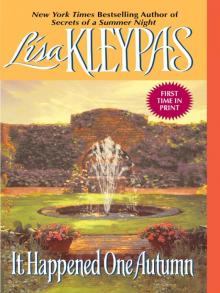 It Happened One Autumn
It Happened One Autumn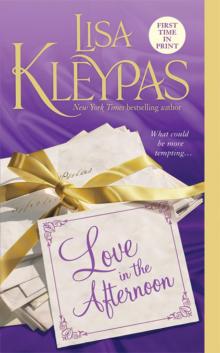 Love in the Afternoon
Love in the Afternoon Devil's Daughter
Devil's Daughter A Wallflower Christmas
A Wallflower Christmas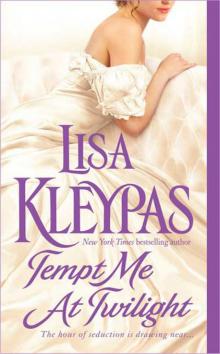 Tempt Me at Twilight
Tempt Me at Twilight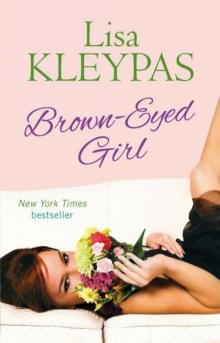 Brown-Eyed Girl
Brown-Eyed Girl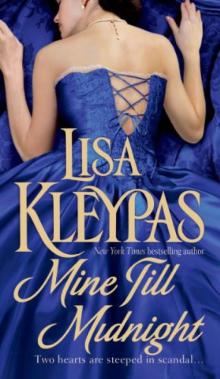 Mine Till Midnight
Mine Till Midnight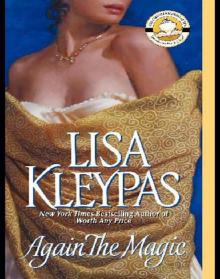 Again the Magic
Again the Magic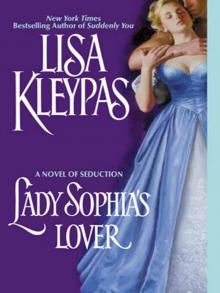 Lady Sophia's Lover
Lady Sophia's Lover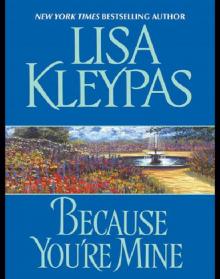 Because You're Mine
Because You're Mine Midnight Angel
Midnight Angel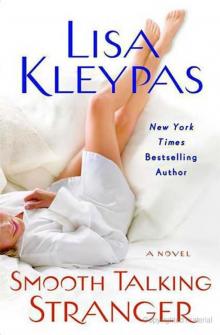 Smooth-Talking Stranger
Smooth-Talking Stranger Blue-Eyed Devil
Blue-Eyed Devil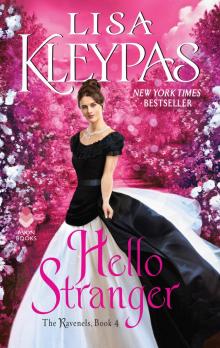 Hello Stranger
Hello Stranger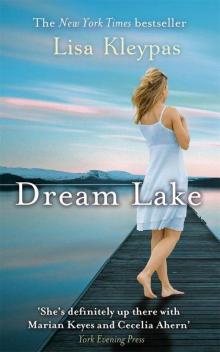 Dream Lake
Dream Lake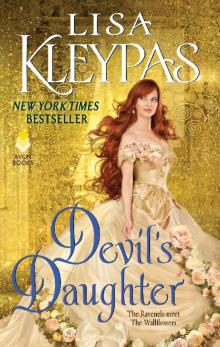 Devil's Daughter: The Ravenels Meet the Wallflowers
Devil's Daughter: The Ravenels Meet the Wallflowers A Christmas to Remember
A Christmas to Remember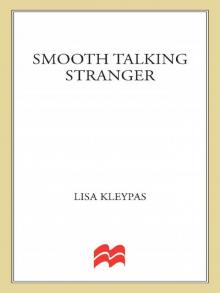 Smooth Talking Stranger
Smooth Talking Stranger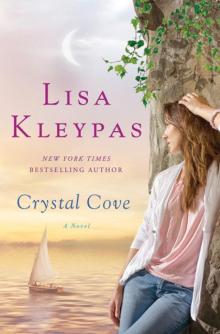 Crystal Cove
Crystal Cove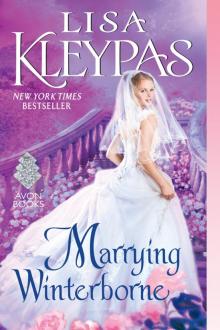 Marrying Winterborne
Marrying Winterborne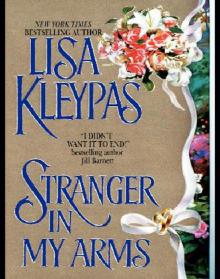 Stranger in My Arms
Stranger in My Arms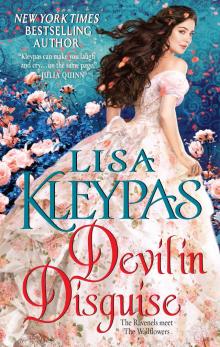 Devil in Disguise
Devil in Disguise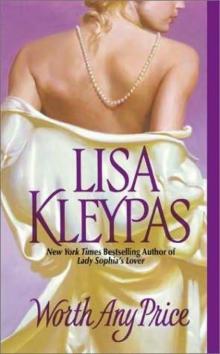 Worth Any Price bsr-3
Worth Any Price bsr-3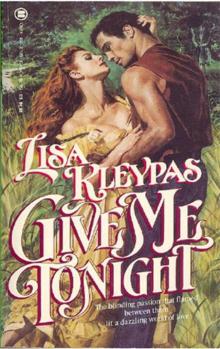 Give Me Tonight
Give Me Tonight Rainshadow Road fh-2
Rainshadow Road fh-2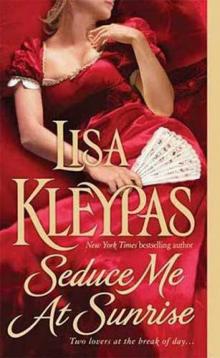 Seduce Me At Sunrise
Seduce Me At Sunrise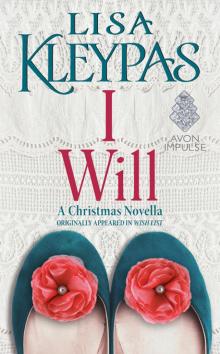 I Will
I Will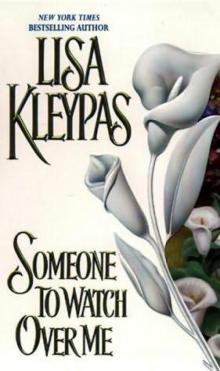 Someone to Watch Over Me bsr-1
Someone to Watch Over Me bsr-1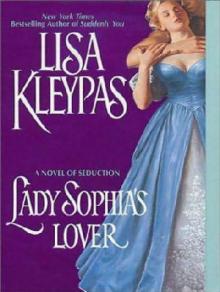 Lady Sophias Lover bsr-2
Lady Sophias Lover bsr-2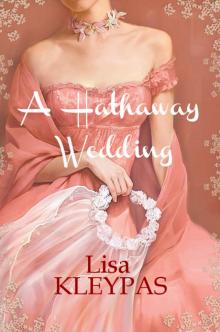 A Hathaway Wedding
A Hathaway Wedding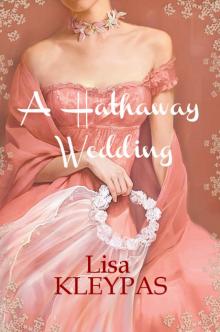 A Hathaway Wedding (Hathaways Bk2.5)
A Hathaway Wedding (Hathaways Bk2.5)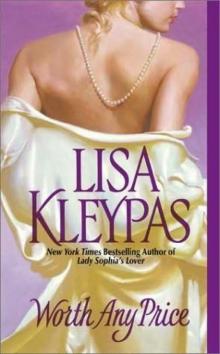 Worth Any Price - Bow Street 3
Worth Any Price - Bow Street 3 Christmas with Holly
Christmas with Holly